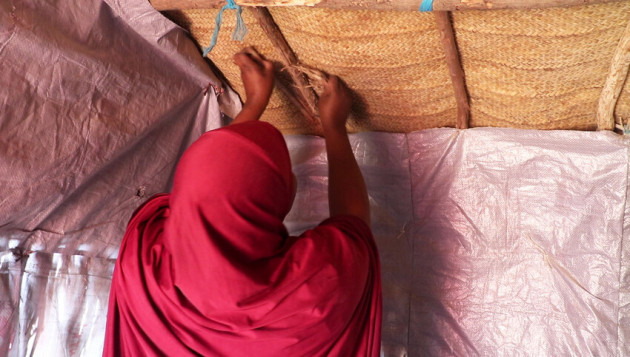Opinion: Child Marriage – a human rights violation happening every two seconds
HUMAN RIGHTS DAY is observed every year on 10 December; it marks the day the United Nations General Assembly adopted the Universal Declaration of Human Rights (UDHR) back in 1948.
The UDHR is a milestone document which proclaims the inalienable rights that everyone is entitled to as a human being.
Regardless of race, colour, religion, sex, language, political or other opinions, national or social origin, property, birth or other status. Available in more than 500 languages, it is the most translated document in the world.
Seventy-four years on from the first Human Rights Day, tremendous headway has been made in the way of respecting and upholding human rights for all people on earth.
As we mark this day, we are reminded of where these rights are not respected with the ongoing World Cup tournament matches in a country that has recently been front and centre in violating human rights.
Qatar's hosting of the 2022 World Cup has spotlighted the country's treatment of people and its blatant disregard for human rights. Although reports coming from Qatar caused outrage globally, it seems if it is not connected to something as exciting as the World Cup, we forget that throughout the world, people's fundamental human rights are being violated every day.
Stealing childhood
Working in the humanitarian sector for many years now, one such violation that comes up repeatedly but is rarely discussed here in Ireland, Europe, and the Global North is early and forced childhood marriage.
 Yakoura, 20, caught HIV after being forced into marriage at 12.
Yakoura, 20, caught HIV after being forced into marriage at 12.
Source: Plan International
Child marriage is a human rights violation that predominately affects girls; not only that; it steals those precious childhood years from them. Fifteen million girls under 18 are married every year – that means that every two seconds, somewhere in the world, a child is married to an adult. When a girl, possibly as young as 11, is forced to marry a man, often three times her age, she is propelled into adulthood.
Girls married before the age of 18 are more likely to experience physical, sexual and domestic violence. They become isolated with their freedom curtailed, are much less likely to stay in school, and are more at risk of contracting HIV and AIDS.
But, most harrowingly, girls forced to marry before they are adults are put at risk of complications as they are forced into pregnancy and birthing babies. At this young age, their bodies are not yet developed enough to carry a child or give birth and what I don't think people realise is that this is the world's number one killer of girls aged 15 to 19.
Poverty trap
Of course, it is not as straightforward as girls being forced to marry older men. Reasons for child marriage are steeped in poverty and extreme hunger, cultural practices, gender inequality, conflicts, disasters and emergencies, but the most prominent reason why child marriage is still happening in 2022 is for economic gain.
Families will marry their daughter to an older man in exchange for some cattle, cash, or crops, sacrificing her to save the other family members from starving. A coping mechanism that has the opposite effect, trapping girls and their families in a cycle of poverty.
20-year-old Yakoura* fled from conflict in Nigeria after armed men attacked her family in their home late at night. “It was 3 am when we were attacked; they killed my father and the rest of us, and we managed to escape into the bush. Then in the days that followed, we crossed the border into Diffa region.”
Displaced from her home and without any income, Yakoura's mother struggled to support her large family, so she decided to marry Yakoura off to a man three times her age when she was just 12 years old.
One day while playing with her little sister, her mother came to tell her that she would get married soon. Shocked, Yakoura couldn't understand what was about to happen to her. Unfortunately, the marriage did go ahead and Yakoura was trapped in an unhappy and abusive situation.
When she fell pregnant, her husband decided to send her back to her mother's house, telling her he could no longer stand her. Yakoura told us that, At the beginning of her pregnancy, she often got sick, so she went to the hospital for tests, and that's when her life changed. They told her she had HIV.
Support
Plan International supported Yakoura through local projects that aim to protect girls from violence, abuse, neglect and exploitation. We were able to assist her with psychosocial support and antiretroviral medication to help her manage her HIV and lead a healthy life.
Unfortunately, this story is not unique; it is something we see every day throughout the world. Many girls continue to be trapped in child marriages where their human rights are violated. Seventy-four years from the first Day of Human Rights, we should be outraged that if nothing is done, more than 150 million girls will become child brides by 2030.
Will we continue to let this number grow? This Human Rights Day and for December 2022, Plan International Ireland is shining a spotlight on this Human Rights Violation against girls. Join us by signing our pledge to End Child Marriage today.
Carole Wickham is Head of Communications and Fundraising at Plan International Ireland. Visit Plan.ie for more information.

Making a difference
A mix of advertising and supporting contributions helps keep paywalls away from valuable information like this article.
Over 5,000 readers like you have already stepped up and support us with a monthly payment or a once-off donation.
For the price of one cup of coffee each week you can make sure we can keep reliable, meaningful news open to everyone regardless of their ability to pay.
This “Eyes on Trafficking” story is reprinted from its original online location.
 ABOUT PBJ LEARNING
ABOUT PBJ LEARNING
PBJ Learning is a leading provider of online human trafficking training, focusing on awareness and prevention education. Their interactive Human Trafficking Essentials online course is used worldwide to educate professionals and individuals how to recognize human trafficking and how to respond to potential victims. Learn on any web browser (even your mobile phone) at any time.
More stories like this can be found in your PBJ Learning Knowledge Vault.
EYES ON TRAFFICKING
This “Eyes on Trafficking” story is reprinted from its original online location.
ABOUT PBJ LEARNING
PBJ Learning is a leading provider of online human trafficking training, focusing on awareness and prevention education. Their interactive Human Trafficking Essentials online course is used worldwide to educate professionals and individuals how to recognize human trafficking and how to respond to potential victims. Learn on any web browser (even your mobile phone) at any time.
More stories like this can be found in your PBJ Learning Knowledge Vault.

